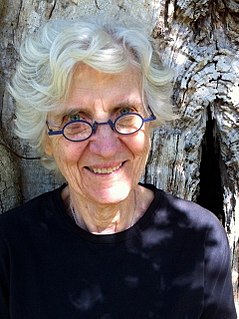A Quote by Bill Watterson
The purpose of writing is to inflate weak ideas, obscure pure reasoning, and inhibit clarity. With a little practice, writing can be an intimidating and impenetrable fog!
Related Quotes
I came out with a book called The True Secret of Writing: Connecting Life with Language. It's a book that describes how writing is a practice and how my teaching is part of that practice. I direct the writing and create books but underneath, there's always the river of practice happening. No good, no bad. Just do it.
Write all the time. I believe in writing every day, at least a thousand words a day. We have a strange idea about writing: that it can be done, and done well, without a great deal of effort. Dancers practice every day, musicians practice every day, even when they are at the peak of their careers – especially then. Somehow, we don’t take writing as seriously. But writing – writing wonderfully – takes just as much dedication.
This is the practice school of writing. Like running, the more you do it, the better you get at it. Some days you don't want to run and you resist every step of the three miles, but you do it anyway. You practice whether you want to or not. You don't wait around for inspiration and a deep desire to run ... That's how writing is too ... One of the main aims in writing practice is to learn to trust your own mind and body; to grow patient and nonaggressive.
As I glanced at the phraseology of the research report, dull and unfathomable to outsiders like me, I thought that if you have the ambition to become a villain, the first thing you should do is learn to be impenetrable. Don’t act like Blofeld—monocled and ostentatious. We journalists love writing about eccentrics. We hate writing about impenetrable, boring people. It makes us look bad: the duller the interviewee, the duller the prose. If you want to get away with wielding true, malevolent power, be boring.
Whether it's writing a monologue or writing standup or writing a screenplay or writing a play, I think staying involved in the creation of your own work empowers you in a way, even if you don't ever do it. It gives you a sense of ownership and a sense of purpose, which I think as an actor is really important.
The deep paradox uncovered by AI research: the only way to deal efficiently with very complex problems is to move away from pure logic.... Most of the time, reaching the right decision requires little reasoning.... Expert systems are, thus, not about reasoning: they are about knowing.... Reasoning takes time, so we try to do it as seldom as possible. Instead we store the results of our reasoning for later reference.
When you are writing, you have to love all your characters. If you're writing something from a minor character's point of view, you really need to stop and say the purpose of this character isn't to be somebody's sidekick or to come in and put the horse in the stable. The purpose of this character is you're getting a little window into that character's life and that character's day. You have to write them as if they're not a minor character, because they do have their own things going on.
Whether your purpose for writing is artistic expression, communication with friends and family, the healing of the inner life, or achieving public recognition for your art - the foundation is the same: the claiming of yourself as an artist/writer and the strengthening of your writing voice through practice, study, and helpful response from other writers.


































